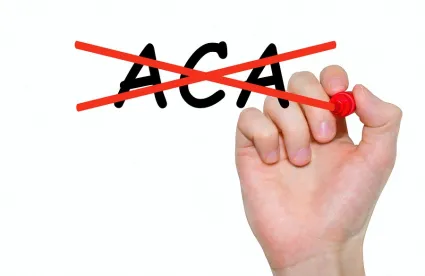The House Ways and Means Committee and the Energy and Commerce Committee (the two congressional committees having primary responsibility for health care legislation) released draft legislation for repealing and replacing aspects of the Obama administration’s 2010 health care reform law on March 6, 2017 (the “ACA”).
The bill, dubbed the American Health Care Act, is scheduled for committee markups on March 8, 2017, where it could be revised but is expected to advance to the House floor for consideration on a date yet to be determined. Once up for consideration in the House, the bill could be subject to further change before it is approved and can advance to the Senate. The final version of the bill has to be agreed to by both chambers before it can be presented to President Trump for signature. If the Senate decides to amend the American Health Care Act or propose an alternative fill, it may send its proposal back to the House for consideration and another vote and the House may respond with a counterproposal, and so on. This ping-pong game would go on until both chambers agree to the same bill.
Alternatively, the different chambers of congress could resolve differences between the respective bills through the conference committee process where a temporary committee negotiates a bill on which both the House and Senate can agree. In this case, the conference committee would be made up of members of the House Ways and Means and Commerce and Energy Committees as well as Senate committees having primary responsibility for health care legislation. Once the conference committee agrees on a bill to propose (called a conference report), both the House and Senate would have to agree to the conference report without changes in order for it to go to President Trump for signature.
In the meantime, what does the Republican-backed American Health Care Act look like in its current iteration? A two-page summary of the American Health Care Act issued by Representative Kevin Brady (R-TX and Chairman of the Ways and Means Committee) says that the budget reconciliation legislation would eliminate the individual and employer shared responsibility penalties as well as dismantling other tax provisions enacted as part of the ACA. This is the news many so-called “large” employers have been hoping to hear. Some other highlights of the bill in its current form:
-
Like the ACA the American Health Care Act would prohibit health insurers from denying coverage or charging higher premiums for patients with pre-existing conditions and would allow children to stay on their parent’s plan until age 26.
-
The bill would enhance health savings accounts (HSAs) by nearly doubling the amount of money individuals can contribute annually to HSAs expand how individuals can use their HSAs.
-
Finally, the bill would provide a monthly tax credit (between $2,000 and $14,000 a year) for low- and middle-income individuals and families who don’t have employer group health coverage (and aren’t covered under a government program).
A summary issued by Greg Walden (R-OR and Chairman of the House Energy and Commerce Committee) explains that the American Health Care Act creates a $100 billion fund for states to design their own health coverage programs, including programs to help low-income persons afford health care, and unwinds the ACA’s Medicaid expansion provisions.
Meanwhile, employers are advised to continue to comply with the ACA’s requirements and stay tuned!




 />i
/>i

